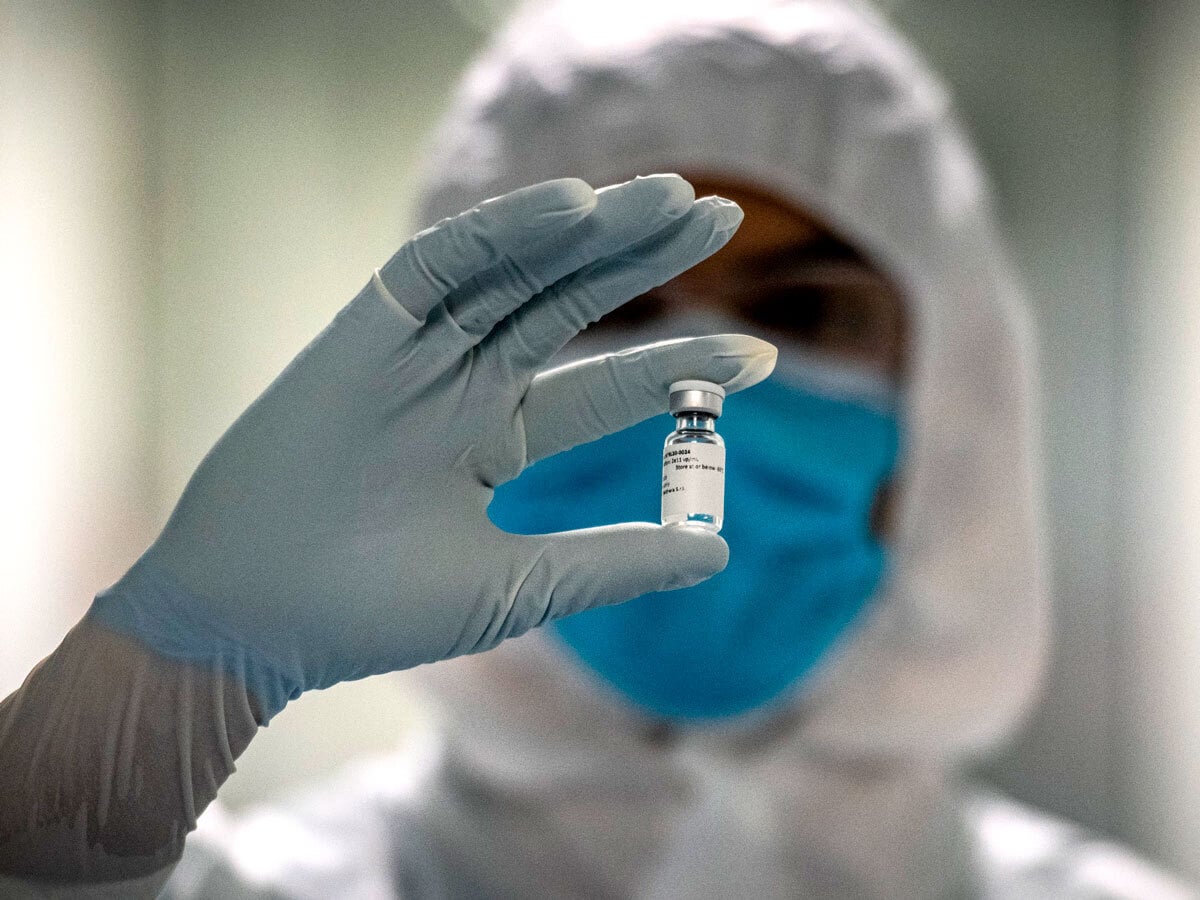After a slow couple of years, Pfizer’s proposed takeover of Seagen could help to revive dealmaking in the life sciences sector. Big pharma giants have yet to spend most of the cash that was generated by their Covid-19 vaccines, and need to find new revenue streams in the face of expiring patents.
- Big pharma firms are facing an expiring patent problem, and looking to acquire products to plug future drops in revenue.
- Regulatory scrutiny can delay deal approvals, as in the case of Sanofi’s proposed buyout of Provention Bio.
- The Virtus LifeSci Biotech Products ETF offers exposure to a number of acquisition targets.
On the same day that Sanofi [SAN.PA] announced a $2.9bn deal for Provention Bio [PRVB], pharma giant Pfizer [PFE] said it intended to acquire cancer specialist Seagen [SGEN] for the eye-watering sum of $43bn.
The Pfizer-Seagen deal is the largest all-cash pharma takeover in history, and the largest-ever all-cash acquisition of a pre-profitability company in any industry, according to Sullivan & Cromwell, a law firm advising Seagen in the acquisition.
On a call with investors following the deal announcement in March Pfizer chairman and CEO Albert Bourla said the company was “not buying the golden eggs” but “acquiring the goose that is laying the golden eggs”. Seagen will double Pfizer’s pipeline of early-stage cancer treatments, according to a press release.
Pfizer, whose 2022 oncology revenue was down 2% year-over-year to $12.1bn, expects Seagen to contribute $10bn to revenues in 2030. The deal is expected to be finalised by the end of this year, or early next year.
The Pfizer share price closed on 14 April at $41.19, 5% above the 52-week low of $39.23 set on 10 March, a few days before the Seagen deal was announced. It’s currently trading 25% below its 52-week high of $54.93, set on 14 December. The stock has been weighed down so far this year by slowing Covid-19 vaccine sales, which could impact the company's bottom line.
Big pharma looks to plug future revenue gaps
There’s cautious optimism that the Pfizer-Seagen deal could help to kickstart a wave of biotech mergers and acquisitions (M&A) activity in the months ahead.
Dealmaking ground to a halt during the pandemic as biotech stocks soared to astronomical multiples. With many likely targets deemed too expensive, big firms were reluctant to make any major moves. According to EY’s annual M&A report, released in January, deals made in the life sciences sector totalled $105bn in the first 11 months of 2022, down 53% from the same period in 2021. There was a slight uptick in activity in December, however, led by Amgen [AMGN], which committed to spending $27.8bn on Horizon Therapeutics [HZNP].
As valuations are starting to look more attractive again, pharma giants like Pfizer and Moderna [MRNA] have been keen to ramp up their M&A activity, especially as they’re now flush with cash from selling Covid-19 vaccines. Moderna agreed to its first-ever acquisition in January, buying Japanese DNA synthesis firm OriCiro Genomics for $85m.
“Those cash balances have not yet been fully deployed and so, in 2023, we are looking at reasonably priced assets and cash rich acquirors—could 2023 be the year of a new acquisition cycle, or even consolidation in the sector, and if so, which types of companies are likely to benefit?” asked analysts at International Biotechnology Trust (IBT) [IBT.L] back in February. Seagen was the Trust’s biggest holding as of 28 February, making up 10% of its net asset value.
At the same time, a number of blockbuster drugs are set to lose their patent protection over the next few years, so pharma companies are scrambling to find new income streams before their revenue falls off a cliff.
“That means companies with ‘oven ready’ products are going to be more attractive than those with years of clinical trials still ahead of them,” the IBT analysts pointed out.
Smaller biotech firms are looking to capitalise on big pharma’s need to boost their product pipelines and sales. As reported by Bloomberg in April, rare diseases drugmaker Apellis [APLS] is keen to make itself a takeover target following US Food and Drug Administration (FDA) approval for its eye disorder treatment Syfovre. BridgeBio [BBIO], another rare diseases player, has also been courting interest from bigger pharma companies.
FTC and anti-competition concerns can slow approval
Timing is key to any successful acquisition, of course. At the end of February, Brad Loncar, founder and CEO of biotech-focused Loncar Investments, who has previously spoken to Opto Sessions, tweeted that he’d like to see Seagen’s new CEO, David Epstein, “have a chance to build Seagen into a bigger, broader and more global oncology company rather than to see it get sold in the near term”.
Loncar admits that he was sceptical that this was the right time for Seagen to sell, but “this apparently was the right price”. He added that the deal “should be easier for Pfizer to get through” from a US Federal Trade Commission (FTC) perspective.
To avoid anti-competition concerns and regulatory scrutiny, Pfizer has ended a long-standing collaboration with Merck KGaA [MRK.DE] on a bladder cancer drug, Bavencio. The news dropped on 27 March, just a few days before the FDA approved another bladder cancer treatment: a combination of Seagen’s Padcev and Merck & Co’s [MRK] Keytruda.
This isn’t to say that Pfizer's proposed takeover of Seagen will go through without a hitch, or that it will necessarily be approved at all. French pharma giant Sanofi announced in early April that it had to withdraw and refile its proposal to buy Provention Bio in order to give the FTC more time to review it, highlighting the challenges and delays companies can face in trying to push through deals.
The FTC has until 25 April to come to a decision, but Sanofi still expects the deal to close in the second quarter.
Funds in focus: Virtus LifeSci Biotech Products ETF
Despite biotech M&A activity having seemingly been revived in the first part of 2023, investors remain cautious on the theme.
The Virtus LifeSci Biotech Products ETF [BBP] has Provention Bio as its top holding, with a weighting of 4.32%, as of 14 April. BridgeBio is the third-biggest (2.84%), Seagen is the fourth-biggest (2.70%), and Apellis is the fifth-biggest (2.60%). The fund is up 2.5% year-to-date and up 3.8% in the past month.
Pfizer is the fourth-biggest holding in the Horizon Kinetics Medical ETF [MEDX] and has a weighting of 5.82% as of 17 April. Sanofi has been allocated 3.82% of the portfolio. The fund, which also holds Amgen and Merck & Co, is down 0.9% since launching on 30 January, but up 5.9% in the past month.
Disclaimer Past performance is not a reliable indicator of future results.
CMC Markets is an execution-only service provider. The material (whether or not it states any opinions) is for general information purposes only, and does not take into account your personal circumstances or objectives. Nothing in this material is (or should be considered to be) financial, investment or other advice on which reliance should be placed. No opinion given in the material constitutes a recommendation by CMC Markets or the author that any particular investment, security, transaction or investment strategy is suitable for any specific person.
The material has not been prepared in accordance with legal requirements designed to promote the independence of investment research. Although we are not specifically prevented from dealing before providing this material, we do not seek to take advantage of the material prior to its dissemination.
CMC Markets does not endorse or offer opinion on the trading strategies used by the author. Their trading strategies do not guarantee any return and CMC Markets shall not be held responsible for any loss that you may incur, either directly or indirectly, arising from any investment based on any information contained herein.
*Tax treatment depends on individual circumstances and can change or may differ in a jurisdiction other than the UK.
Continue reading for FREE
- Includes free newsletter updates, unsubscribe anytime. Privacy policy





